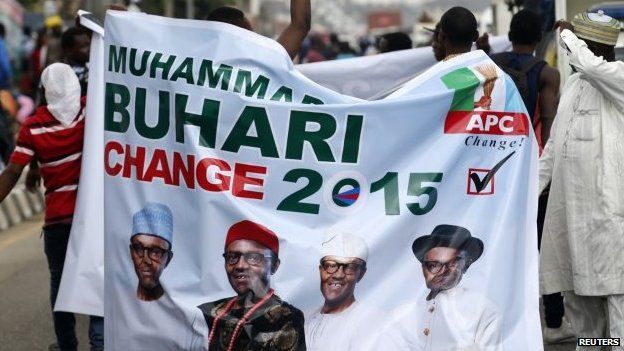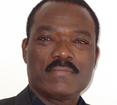In hope Buhari inspires others
BY SOUMANOU SALIFOU
The recent peaceful political transition in Nigeria has been extensively discussed, so let me not beat a dead horse. But President Buhari is in Washington this week, and after the warm reception President Obama gave him at the White House today, as I take stock of his deeds so far and the laudable agenda he has laid out for Nigeria, I can’t resist the temptation to offer a few words.
First, Buhari’s deeds so far
As a candidate, Buhari made the fight against corruption and defeating Boko Haram two of his goals if elected. On July 13, 45 days after assuming office, he replaced the entire top echelon of the Nigerian military, accusing them of corruption. This is a huge decision that required enormous courage.
Nigeria, a bustling, densely-populated oil-producing country whose main city, Lagos, looks a lot like a huge marketplace, is not the only corrupt country in Africa, probably not even the most corrupt one. During two decades of selling ads in Africa for this magazine in more than two dozen countries that I traveled to extensively, I had the chance to negotiate and close advertising deals with dozens of government and private-sector executives, often dealing with the personnel in the accounting departments; so I know first-hand the depth of corruption and petty greed in Africa. I was never coerced into giving money to anyone at the airport in Lagos or Abuja as I was in Malabo, Equatorial Guinea, or bribe corrupt Ghanaian customs officers to cross the border into Ghana from Lome—just a few days after a mechanism had been put in place, with the assistance of the U.S. government, to end that form of extortion and others at that very border.
Now, Buhari’s agenda
President Buhari’s agenda includes an aggressive plan to recover funds stashed away in foreign banks by his compatriots, and a host of actions aimed at strengthening the economy. This is a credible agenda put forth by a credible leader who is reportedly the only Nigerian head of state not to have enriched himself from state coffers. The support pledged by President Obama will go a long way to help him achieve these lofty objectives, though not overnight.
While Buhari was at the White House today being praised for his deeds and his announced agenda, the Eastern African country of Burundi was in the middle of a political crisis stemming from popular opposition to that country’s president, Pierre Nkurunziza’s plan to run for a third, illegal term. After three months of chaos—the loss of more than 100 lives, a failed coup attempt, the emergence of a newly-formed rebel group—nothing could stop the Nkurunziza machine. The election is expected to take place and he will obviously win.
The Pierre Nkurunzizas, unfortunately, are not a rare species in Africa. Some of them have been in power for decades, and, though now filthy-rich but worn out and willing to retire, they fear reprisals after stepping down—unless they can be succeeded by one of their children—so they cling to power. Some of them hold a doctorate in economics and yet have driven their country’s economy into the ditch.
As we inhale the fresh air instilled in African politics by Buhari and the Nigerian people, I hope they can inspire other African countries. Such political developments sometimes have a domino effect. The concept of “national conference” which originated in Benin in 1989 spread like bush fire to several African countries, with, in some cases, dramatic outcomes such as the sad end of the late Zairian strongman, Mobu Sesse Seko.
It was said two decades ago, like the refrain of a popular song, that the 21st century would be the time for Africa to emerge as a great continent. Fifteen years into the new century, although six of the 13 fastest-growing world’s economies are in Africa, abject poverty is still the norm, and the Pierre Nkurunzizas are in the majority.
I wish President Buhari success and hope more like him emerge over the next 85 years.
Soumanou Salifou is the editor of The African




